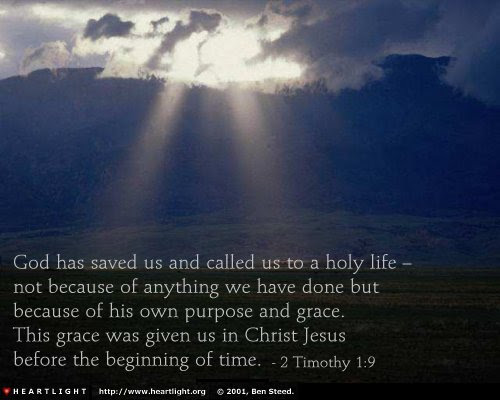A LIVING FAITH IN ACTION
Prayer
Reconciliation with the Lord our God is the immense privilege that has been extended to all those who know His Word. Over the millennia He has called many to be His sons and daughters, yet being adopted into the divine family brings responsibilities. For those who do respond to that gracious calling, a way has been opened through the Lord Jesus that faith can find expression through prayer. Just think for one moment of how incredible that invitation to commune with our Creator is! Indeed it could be said that prayer is the life blood of a living faith. Yet approaching Yahweh in prayer is not something to be taken lightly, but rather something that commands our utmost respect and reverence. The wise man wrote:
“Walk prudently when you go to the house of God; and draw near to hear rather than to give the sacrifice of fools, for they do not know that they do evil. Do not be rash with your mouth, And let not your heart utter anything hastily before God. For God is in heaven, and you on earth; Therefore let your words be few.” Eccles 5:1-2
How often maybe in our daily conversations is it a case of open mouth and engage brain afterwards! Words often flow forth without much thought given as to the value of the message spoken.
This should never be the case in our prayers. Yahweh dwells in heaven and we are creatures of the dust upon the earth, therefore let words be few and to the point. To quote a well known phrase, ‘say whet you mean and mean what you say!’ Recognition of the immense greatness of Yahweh and a humble, thoughtful attitude of mind is an essential prerequisite of prayer.
Yet this should not lead us into thinking that prayer is something that must be confined to those rare occasions when we have a dire need or when somehow we ‘think’ our frame of mind is right. If that were the case prayer would be a rare event indeed. On the contrary, faith will desire to commune with Yahweh in prayer, drawing strength and comfort from knowing that prayer is heard. A living faith will listen to the exhortation of Paul who tells us to “Pray without ceasing” (1Thess 5:17) and who wrote:
“Praying always with all prayer and supplication in the Spirit, being watchful to this end with all perseverance and supplication for all the saints” Eph 6:18
Yet how often prayer comes forth from faltering and stammering lips that so often do not somehow find the right words to say. How often when desiring to engage in prayer, do we find that the mind wanders or thoughts get jumbled up and our words feel clumsy and inadequate before the Lord our God. If this is the case, then be assured you are not on your own!
The disciples once asked the Lord Jesus ‘teach us how to pray’. His answer came as that wonderful model of prayer that has become known as ‘the Lord’s prayer’ (Luke 11:2-4). It is not the intent now to go into the detail of this prayer, but just think of its simplicity yet also of the profound nature of the scope of this prayer. The wise man wrote ‘God is in heaven, and you on earth’, thus the Lord’s Prayer commences with ‘Our Father in heaven, Hallowed be Your name.” Reverence for Yahweh and His great Name should be the first thought and unpinning motive behind prayer. It is a deep and intense realisation that puts human nature firmly in its place. Human nature and personal will is then subjected to His divine will by acknowledging:
“Your kingdom come. Your will be done on earth as it is in heaven”.
A faith put into action will eagerly seek out His will and strive to obey His commands. Faith will desire to know His ways and His Word, then will strive to live a life according to those precepts. So very often the perspective will falter, vision will fade, and personal desires will surface, striving to take precedence over His will. But faithful prayer will restore the right perspective once again.
A living faith will realise the utter truth of Jesus next words: “Give us day by day our daily bread” and recall the teaching that “‘Man shall not live by bread alone, but by every word that proceeds from the mouth of God.” Matthew 4:4
Our dependence upon Yahweh is total, for we have nothing that has not been given to us and day by day our merciful Creator provides for His children’s spiritual and material needs. More than this, “He makes His sun rise on the evil and on the good, and sends rain on the just and on the unjust”. (Matthew 5:45), how much more then will He not provide for those who love Him. Thus Paul writes:
“Be anxious for nothing, but in everything by prayer and supplication, with thanksgiving, let your requests be made known to God; and the peace of God, which surpasses all understanding, will guard your hearts and minds through Christ Jesus.” Philippians 4:6-7
The next words in the Lord’s Prayer remind and emphasise our overriding need for forgiveness. Despite our best efforts we all, every single one of us, fail to avoid sin. Thus Jesus taught His disciples to pray:
“forgive us our sins, for we also forgive everyone who is indebted to us. And do not lead us into temptation, but deliver us from evil.”
This is no mere academic acknowledgment of the need for forgiveness, nor mechanistic recital of the words, but forgiveness must be sought from a repentant heart that desires to put right what is wrong. Forgiveness will not be granted if sin is not truly repented of, because we persist in deliberately doing what we have done wrong. Nor will we find forgiveness if we cannot forgive from the heart, those who in reality owe, but a paltry debt to us. Yet as in all things we are so frail and weak, never able to attain to the ideal. So many times we find ourselves, despite best intentions, doing those things we know to be wrong – sin so easily entangles. How often we forgive, but find it hard to forget! Surely we can relate to those words that Paul wrote:
“O wretched man that I am! Who will deliver me from this body of death? I thank God––through Jesus Christ our Lord!” Rom 7:24-25
Thus we have a great need to be kept away from temptation and sin and to be delivered from evil. Overcoming our failings is not something that we can do alone. We must make the effort, but the strength to overcome will be derived from a living faith that arises from the daily reading and practice of the Word. A willing mind that attempts to put the commandments into daily practice, to the best of our ability.
However, prayer must not be viewed as being only for our own needs. It is equally as much a time and opportunity to remember the needs of others. Indeed, James writes:
“Is anyone among you sick? Let him call for the elders of the church, and let them pray over him, anointing him with oil in the name of the Lord. And the prayer of faith will save the sick, and the Lord will raise him up. And if he has committed sins, he will be forgiven. Confess your trespasses to one another, and pray for one another, that you may be healed. The effective, fervent prayer of a righteous man avails much.” James 5:14-16
The fervent prayer of a righteous man! Surely we think, not us. If only I might be righteous and the possessor of such fervent lips! In many ways this thought may be correct, for we are in so many aspects of our lives ‘unrighteous’. Yet we have the comfort that through the Lord Jesus Christ sincere prayer rises up as sweet incense before the Lord our God, sanctified in Jesus and acceptable through his mediation. The one perfect and truly righteous man. Indeed David prayed:
“Let my prayer be set before You as incense, The lifting up of my hands as the evening sacrifice.” Psalm 141:2
Yahweh is indeed willing to hear prayer and as already remarked, prayer is both a privilege and the life blood of faith. What child does not seek out their father to talk to them, to seek advice, to talk about problems, to share experiences and events? How much more then, should we as children of the living God, not seek Him out through prayer. Yet we need the right attitude of mind that fully believes and trusts that our prayers will be heard. If we do not have this belief and confidence, then our prayer will be still born, echoing up into eternal silence. Now David’s confidence that Yahweh would hear prayer shines through the Psalms:
“O You who hear prayer, To You all flesh will come. Iniquities prevail against me; As for our transgressions, You will provide atonement for them” Psalm 65:2-3
and
“If I regard iniquity in my heart, The Lord will not hear. But certainly God has heard me; He has attended to the voice of my prayer. Blessed be God, Who has not turned away my prayer, nor His mercy from me!” Psalm 66:18-20
Though our sense of iniquity may feel like a burden that we carry. Though we may feel that personal sin will count against us, a living faith will find solace in the knowledge that Yahweh has provided atonement. Though our prayers come from stammering lips, He will not turn His mercy away from us. His only requirement is that we do not regard iniquity, but rather strive to develop a living and active faith, having our minds attuned to His will and purpose.
Yahweh will listen to sincere prayers that stem from an open and honest heart. There is no need to shout, no need to even to speak out loud, our very thoughts are known to Him who knows all things. No motive is hidden and every thought is laid bare before our Creator. The silently expressed thoughts stemming from the heart are heard and noted. No matter what our problems, cares or worries, strength and help are only a prayer away!
Andy Peel
+
Of interest: > Faith Requires a Basis
+++
2016 January update for related articles
































